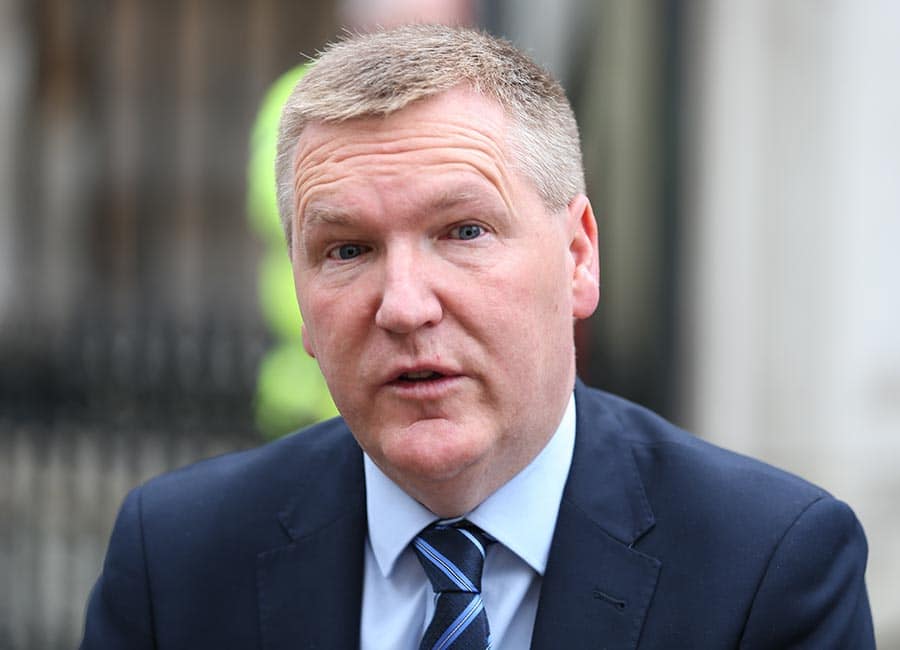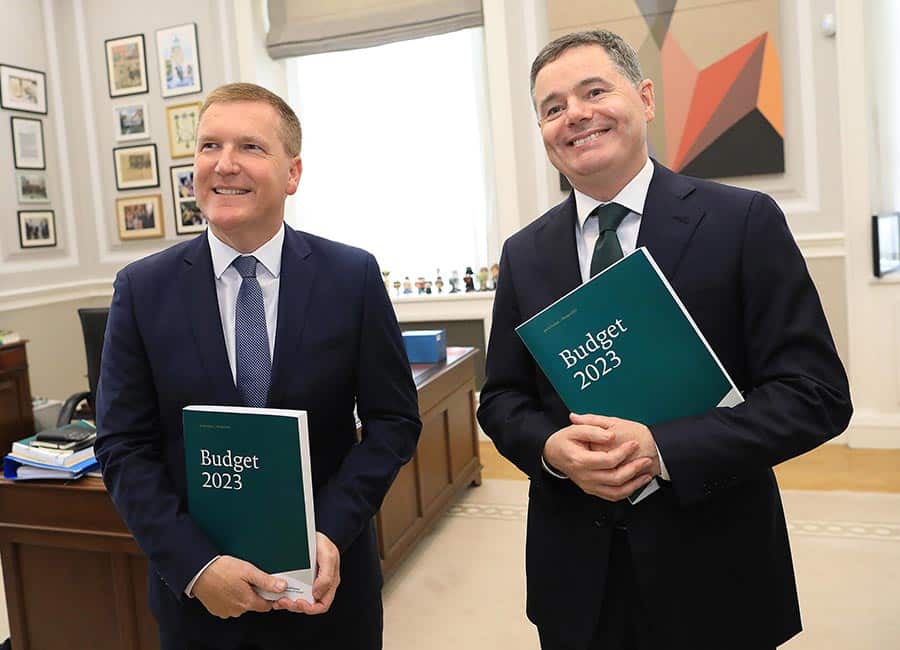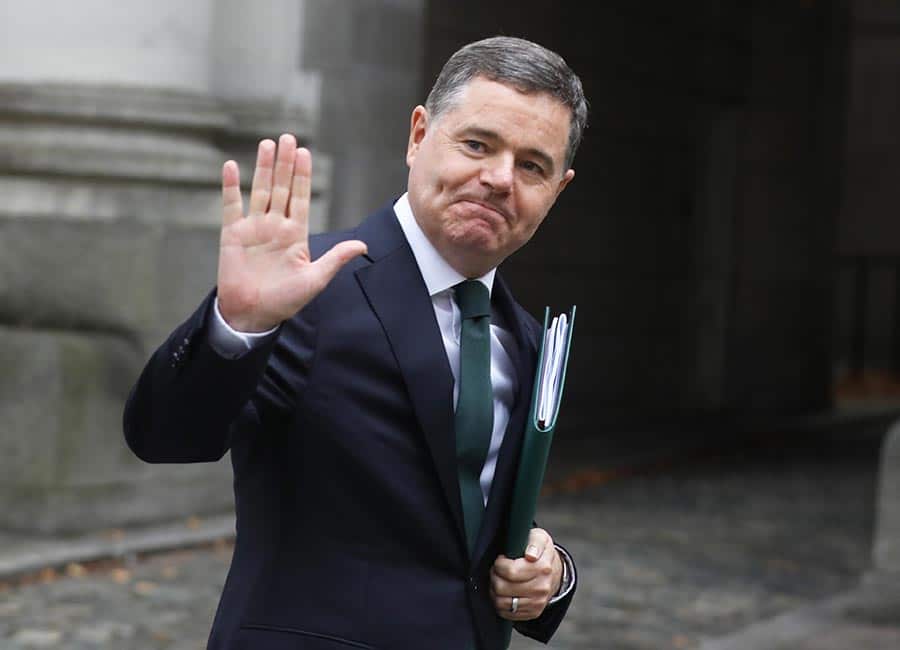Budget 2023 spending measures will be five times larger than reductions in the tax burden, ministers have indicated in the Summer Economic Statement.
In the annual SES, minister Paschal Donohoe and Michael McGrath said they have pencilled in an overall package of €6.7 billion, made up of additional public spending amounting to €5.65 billion and taxation measures amounting to €1.05 billion.
Minister McGrath (pictured) said that Budget 2023 is being framed against an international backdrop that is "increasingly difficult and highly uncertain".
According to the SES document: "In terms of the geopolitical situation, risks to European energy supplies (especially natural gas) are real, and any shortfall could trigger a sharp disruption to economic activity across the continent. On the policy front, ensuring that inflation does not become entrenched will be a significant challenge, especially against the backdrop of elevated public debt in some member states of the euro area."
The government is of the view that the domestic economic outlook for the second half of this year and for 2023 is less benign than envisaged in the spring, while inflation has proven to be higher, broader and more persistent.
On a more positive note, the ministers noted that the public finances have weathered the pandemic relatively well. While substantial amounts of support were made available – around €48 billion in tax, spending and loans (including via guarantees) – the tax revenue performance was much better than could have been anticipated, the SES states.
This reflects the resilience of corporation tax receipts, which amounted to €15.3 billion in 2021 compared with €3.5 billion a decade earlier. These receipts now account for nearly €1 in every €4 collected, and half of these receipts are sourced from just ten large firms.
The SES statement cautions: "This means that €1 in every €8 collected by the state comes from an exceptionally small number of firms, a concentration risk which represents a clear vulnerability for the public finances."
Budget 2022 provided for up to €87.6 billion in gross voted expenditure through 2022. A total of €80.1 billion was provided for ‘core’ expenditure in 2022 to deliver public services, social supports, and investment in infrastructure.
In addition, €7.5 billion was set aside to fund temporary measures through 2022, as part of the ongoing response to the pandemic and Brexit.
The SES discloses that the core expenditure ceiling for 2023 is being increased by €1.65 billion relative to that set out in this year’s Stability Programme Update (SPU). With €0.4 billion of this uplift phased into 2022, this will result in core current expenditure growth of 6.5% budgeted for 2023. This will increase overall core spending in 2023 to €85.8 billion.
War costs hit home
The government also intends to provide for €4.5 billion in non-core expenditure for temporary measures through 2023. This expenditure line includes providing humanitarian supports for refugees arriving from Ukraine.
In the SPU, contingency funding of €3 billion was set out as an indicative figure as the cost of accommodating Ukrainian refugees in 2023, and the SES confirms this estimate.
The SES document comments: “The exact level of costs will depend on a number of factors, including the total number of arrivals, the length of stay and the accommodation solution provided. Uncertainty remains in relation to many of these factors. The latest available information will be reviewed in the context of Budget 2023 preparations and inform funding allocations."
The SES makes clear that outside of sharply higher fuel and utility costs, the direct cost to Irish taxpayers next year of funding the fallout from the Russia/Ukraine war will amount to three times the 2023 income tax concessions that will be detailed in the forthcoming budget.
The SES indicates that adjustment to income tax bands is on the cards when Budget 2023 is announced in the autumn.
"A key objective of taxation policy in the forthcoming budget will be to avoid workers paying additional tax simply because they move through higher tax brackets because of inflation," the SES document states.










